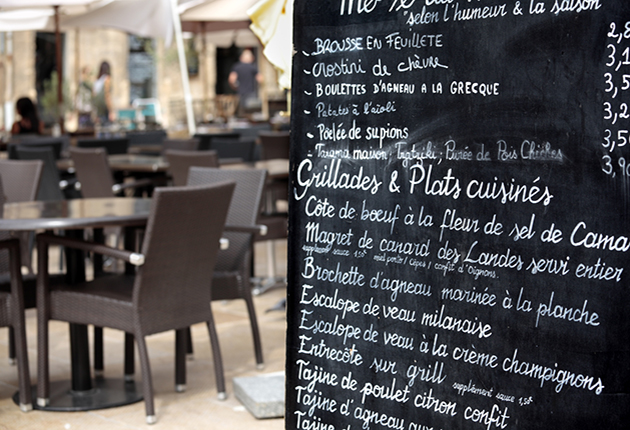All you need to know about French cuisine

Deciding to relocate to another country long term will inevitable mean making lifestyle changes. Often it is these lifestyle changes that are a prime incentive in wanting to work and live in another country.
One thing that will vary from country to country is food. Each culture will have its particular style of cooking, its own delicacies and a different availability of common foods. France is well known for its high-quality food, paired with exquisite local wines. There is a reason that the UK has so many French restaurants after all. But what is the cuisine like day to day? And how different is it to the typical British diet?
Eating traditions
France is one of Europe’s, if not the world’s, top culinary destinations. Meals can be long, family affairs with many courses, enjoyed at length. Food isn’t something to be rushed, but rather savoured and enjoyed.
The timings of meals can vary too. Breakfasts tend to be small; think a croissant and coffee or a portion of fruit. There is a reason it’s called petit déjeuner, with the emphasis on ‘little’. It’s harder to come by a full English fry-up when out and about, as fresh bakeries and coffee shops take precedence.
Lunch is often the largest meal of the day at around 1pm, and when time allows, this can be more than one course. Expect long lunches with colleagues in the week, and a family meal at the weekends at this time. School and office canteens often serve three courses.
After a big lunch, the evening meal tends to be smaller and lighter. Things like meats, cheeses, bread, salad, fruit, yoghurt and so on are the norm. Snacking is not as common in France as it is in the UK. Children coming home from school may indulge in an afternoon snack, but in general adults are less likely to graze between meals. This evening meal can be late – around 8pm – when all the family can eat together.
This general attitude towards a balanced diet, an enjoyment of food and a lack of snacking may be the reason why the French, in general, suffer less of an obesity problem than the rest of Europe, despite the preference for rich foods.
Love of cooking
Cooking is a popular past-time in France. Ready meals and fast food is frowned upon and not generally eaten. Food is a pleasure to enjoy and not to rush. French children eat the same food as adults, and usually at the same time. It would be considered unusual to make separate meals just for children to eat.
If invited to dinner at someone’s home, it wouldn’t be unusual to have a series of homemade courses. Wine and bread are often plentiful, and the whole thing is finished with coffee. Taking the host a small gift is expected, as is a follow-up thank you note. Social ties are often formed over meals, so it’s an important way to get integrated into a new community.
For special occasions, such as birthdays, weddings, anniversaries and the like, there is the ‘gastronomic meal’, which was inscribed into the Representative List of Intangible Cultural Heritage of Humanity by UNESCO in 2010. This meal has a fixed structure that includes a small appetiser (or Hors d’oeuvres), a starter course, a main course, a salad, a cheese plate and dessert.
The French care about where they food has come from. If something is not ‘in season’ it can be hard to find, which can be a shock to the system coming from the UK where major supermarkets can have pretty much any fruit or vegetable year round. This means that popular dishes can vary throughout the year to suit the current crop.
If you’re moving to France, find out how our international removals team can help to arrange packing, storage and transportation on your behalf.



